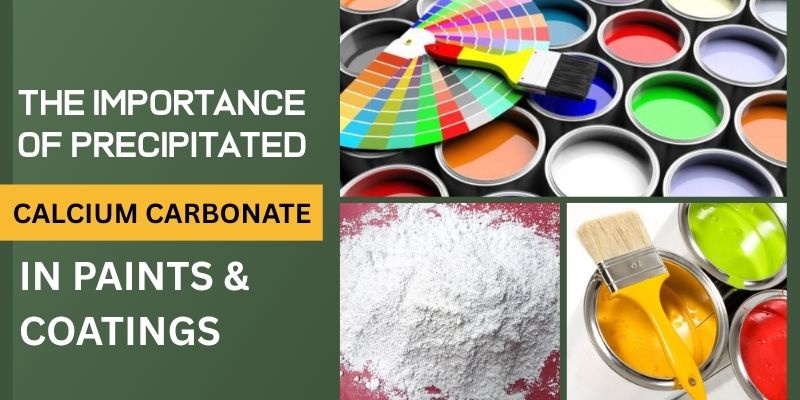
The Importance of Precipitated Calcium Carbonate in Paints & Coatings
Precipitated calcium carbonate (PCC) plays a crucial role in the paints and coatings industry, offering numerous benefits that enhance the quality and performance of finished products. Known for its purity and uniform particle size, PCC is widely used by manufacturers seeking to improve paint durability, opacity, and environmental sustainability. In this blog, we’ll dive into the significance of precipitated calcium carbonate in paints and the versatile applications of calcium carbonate for coatings.
What is Precipitated Calcium Carbonate
Precipitated calcium carbonate is a synthetically produced form of calcium carbonate characterized by its high purity, controlled particle size, and unique morphology. These properties make it highly suitable for industrial applications, especially in the coatings sector, where consistency and quality are essential.
Key Benefits of Precipitated Calcium Carbonate in Paints
1. Enhanced Durability and Weather Resistance
The presence of precipitated calcium carbonate in paint contributes to the durability and weather-resisting characteristics of the entire coatings system. PCC plays a role in protecting surfaces from wear, moisture and UV degradation, which contributes to the overall longevity of paint finishes.
2. Improved Opacity and Brightness
PCC acts as a cost-effective pigment extender in paints, enhancing whiteness and opacity. This reduces the amount of expensive pigments like titanium dioxide needed, lowering production costs while maintaining excellent visual qualities.
3. Better Application and Coverage
The fine particle size of precipitated calcium carbonate ensures smooth application and even coverage, resulting in aesthetically pleasing finishes with fewer coats.
Applications of Calcium Carbonate for Coatings
- Architectural Coatings: Enhances the appearance and durability of interior and exterior paints.
- Industrial Coatings:Provides resistance to abrasion and chemicals for long-lasting protection.
- Powder Coatings: Improves flow and surface smoothness for superior finishes.
- Automotive and Marine Coatings:Offers enhanced durability against harsh environments.
Environmental and Economic Advantages
Utilizing calcium carbonate for coatings improves product quality and helps achieve sustainability objectives. PCC is environmentally sustainable, non-toxic, and enables customers to replace petroleum-based synthetic additives and heavy metals, the costs of using PCC is attractive to manufacturers looking at cost optimization without compromise on quality.
Conclusion
There is no denying the significance of precipitated calcium carbonate in paints and coatings. It is a critical ingredient in modern coatings formulations as it offers durability, brightness, and value. For manufacturers wanting to make high-quality, sustainable, and budget-friendly products, PCC is still the most important component in the paints and coatings sector.